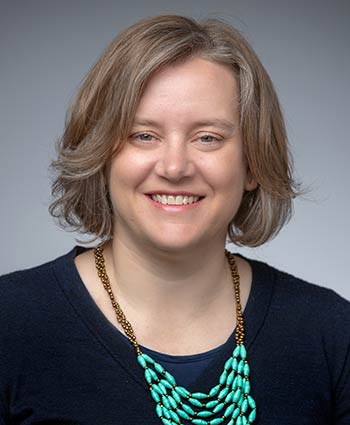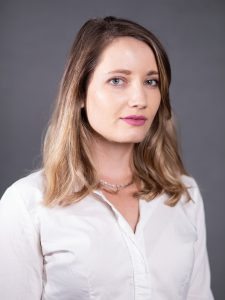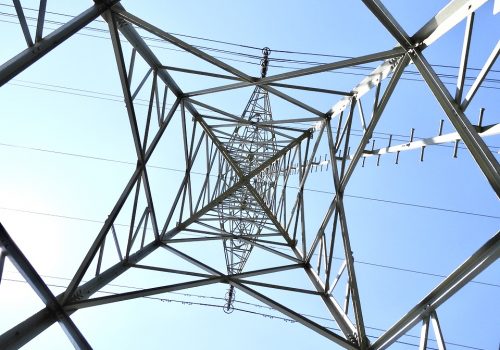As the global community continues to grapple with the coronavirus (COVID-19), the Atlantic Council is open for business. Our business, meetings, and events, however, are occurring virtually. For more information, please read an update from our President and CEO.
Ms. Kurtz will describe how ARIES can help de-risk, optimize, and secure existing energy systems as well as improve the design and operation of new technologies. ARIES can achieve this by integrating the testing and analysis of electrical, natural gas, transportation, water, and telecommunications operations. Ms. Kurtz will showcase how ARIES’s innovative research platform can address multiple energy systems challenges, including: adding new large-scale energy technologies, controlling millions of interconnected devices, and integrating diverse technologies that have not previously worked together.
Event recap
On October 22, 2020, the Atlantic Council Global Energy Center hosted Jen Kurtz, director of the energy conversion and storage systems center at the National Renewable Energy Laboratory (NREL), as part of EnergySource InnovationStream, an online series that highlights new energy technologies with the potential to reshape the global energy system. Kurtz delivered a presentation on NREL’s new research platform—Advanced Research on Integrated Energy Systems (ARIES). Randolph Bell, Richard Morningstar chair for global energy security and director of the Atlantic Council Global Energy Center, provided introductory remarks and moderated the discussion.
Kurtz began her presentation with an overview of the ARIES integrated research platform. ARIES aims to accelerate new energy innovation by addressing three core challenges currently facing breakout energy technologies: variability in physical size, difficulty controlling large numbers of interconnected devices, and integration of diverse technologies. ARIES research will be conducted at two physical campuses. While NREL’s Energy Systems Integration Facility prioritizes loads and storage research under two megawatts (MW), NREL’s Flatirons campus handles larger-scale storage, transmission, and distribution research for loads up to 20 MW. ARIES will also include a virtual emulation environment, which will expand the size and number of energy technologies integrated into one system.
Kurtz emphasized that ARIES will remove barriers and help bring new energy innovations to market by combining hardware, analysis, and modeling to integrate complex system configurations into real world situations. According to Kurtz, ARIES enhances the capabilities of whole systems by taking the entire energy system into consideration, including generation, demand, and storage. ARIES raises its impact through strategic collaboration, leveraging expertise within the national lab infrastructure and industrial and academic capabilities. Kurtz underscored that ARIES’ ability to research diverse technologies under controlled, realistic conditions enables a full understanding of the “connection points and challenges” involved in bringing energy innovations to market.
The audience Q&A session focused on ARIES’ technology and industry applications. In a poll, the audience identified integration as the greatest challenge to introducing a new technology to an existing energy system. Kurtz explained that successful integration between new technologies and legacy systems allowed NREL’s Flatirons campus to keep the lights on after a substation failure in September. The ARIES research and development staff stood up a microgrid capability to power the campus with renewable energy, demonstrating control, safety, and monitoring that can be further incorporated into other innovations.
Kurtz continued to highlight ARIES’ virtual emulation environment as a critical component of the project’s research capabilities. The virtual emulation environment mimics a wide variety of real-world scenarios otherwise difficult to replicate in a research setting. Kurtz explained that the virtual emulation environment allows industry and academic partners to test the “what if” risk situations of new energy technologies, such as energy demand fluctuations, simulated cyber-attacks, climate risks, and scalability.
Featuring

Jen Kurtz, director of energy conversion and storage systems center at the National Renewable Energy Laboratory (NREL)
Jennifer Kurtz was appointed to her current position as director of NREL’s Energy Conversion and Storage Systems Center in October 2020. Previously, she managed the hydrogen and fuel cell systems engineering group in NREL’s Center for Integrated Mobility Sciences. This research group conducts hydrogen and fuel cell activities in technology validation, safety, codes, and standards, market transformation, hydrogen infrastructure, grid integration, and renewable hydrogen production, with a focus on increasing the efficiency, lowering the cost, and improving the reliability of systems through analysis, experiments, and industry/agency partnerships. As a principle research engineer for the National Fuel Cell Technology Evaluation Center, she processed, analyzed, and reported on real-world data from fuel cell and hydrogen projects spanning multiple markets—vehicles, forklifts, hydrogen stations, and backup power. Prior to joining NREL in 2007, Kurtz worked at UTC Power, primarily in fuel cell system design.
Related experts
Learn more about the Global Energy Center

The Global Energy Center develops and promotes pragmatic and nonpartisan policy solutions designed to advance global energy security, enhance economic opportunity, and accelerate pathways to net-zero emissions.


